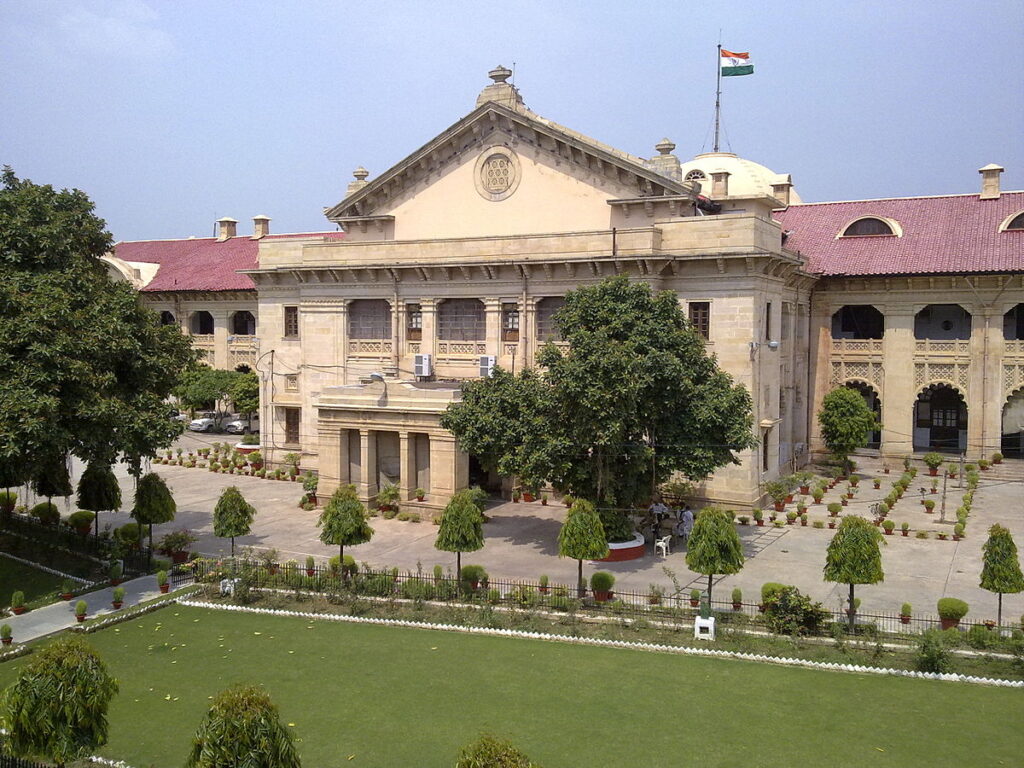Investigating agencies need to make sure they follow the correct procedures for recovery under Section 27 of the Evidence Act, according to the Allahabad High Court.

The Allahabad High Court has observed that the prosecution often ignores proper procedures for recovery under Section 27 of the Evidence Act. The Court has ordered that Investigating Agencies must follow the legal procedures for recovery. The Division Bench, which includes Justice Ashwani Kumar Mishra and Justice Dr. Gautam Chowdhary, stated, “We frequently see cases where we have to dismiss the prosecution’s case because the necessary safeguards for recovery under Section 27 of the Evidence Act are not followed. It is crucial that Investigating Agencies understand the legal requirements for recovery under this section…”
The High Court was reviewing a criminal appeal against a conviction order from the Special Judge (SC/ST Act). The accused was sentenced to life imprisonment under Section 302 I.P.C. along with ten years for Section 377 I.P.C. and five years with a fine under Section 201 IPC. The father of the deceased reported that his 13-year-old son was missing. Three days later, he received a call informing him that his son had been found dismembered on the railway track. The caller, identified as Daya Prasad Tiwari @ Vyas Ji (the accused), claimed the boy died in a train accident. The accused confessed that the deceased’s brother-in-law had asked him to return the boy, but instead, he took him to his village, committed a crime against him, and then killed him. He also revealed that the body was buried at his home.
The Bench observed that the postmortem report confirmed the injuries and determined the death was a homicide. However, it noted that the confessional statement lacked supporting evidence to link the accused appellant to the crime. This confession was made in two instances: first to the informant and his son, and second to the Police. The Bench pointed out that confessions made to the Police are generally not admissible under Sections 25 and 26 of the Evidence Act, referencing the case of Aghnoo Nagesia v. State of Bihar, 1965 SCC OnLine SC 109.
The High Court found no record of a disclosure statement from the accused appellant, nor was there any independent witness present during the confession. The Bench also did not accept the extrajudicial confession made to the informant, as such confessions are considered weak evidence and require strong corroboration. Additionally, there was no credible evidence indicating that the body was found in the accused’s home. The Bench further noted that the FSL report did not link the accused to the crime, as the bloodstains and semen found on the recovered items were not proven to belong to the accused.
The current case shows that the court’s required procedures were not followed. There was no disclosure statement made in front of two independent witnesses, and no panchayatnama was created for the recovery of the dead body. The way the recovery from the accused’s house is being presented is inadequate. Therefore, the court decided that the accused should be given the benefit of the doubt since the prosecution did not prove its case beyond a reasonable doubt. The court noted that investigations often ignore these important procedures and stated, “Investigating agencies must be directed to follow the legal procedures for recovery under Section 27 of the Evidence Act, or else important evidence may lose its value in court. Ignoring these procedural safeguards is not just a minor issue; it can make the evidence regarding recovery inadmissible.”
The court then ordered the Registry to send a copy of this judgment to the Additional Chief Secretary (Home), Principal Secretary (Law), and Director General of Police to ensure that all relevant parties are informed. This is to make sure that investigating authorities comply with the necessary safeguards for evidence recovery under Section 27 of the Evidence Act in the future.
Cause Title: Daya Prasad @ Vyas Ji v. State of U.P. [Neutral Citation: 2024:AHC:171384-DB]
Appearance:
Appellant: Advocate Gunjan Sharma
Respondent: Govt. Advocate








